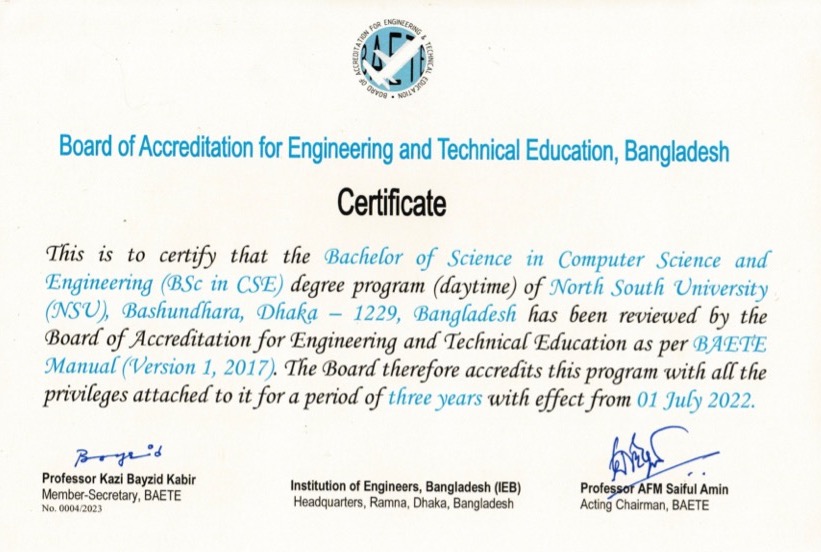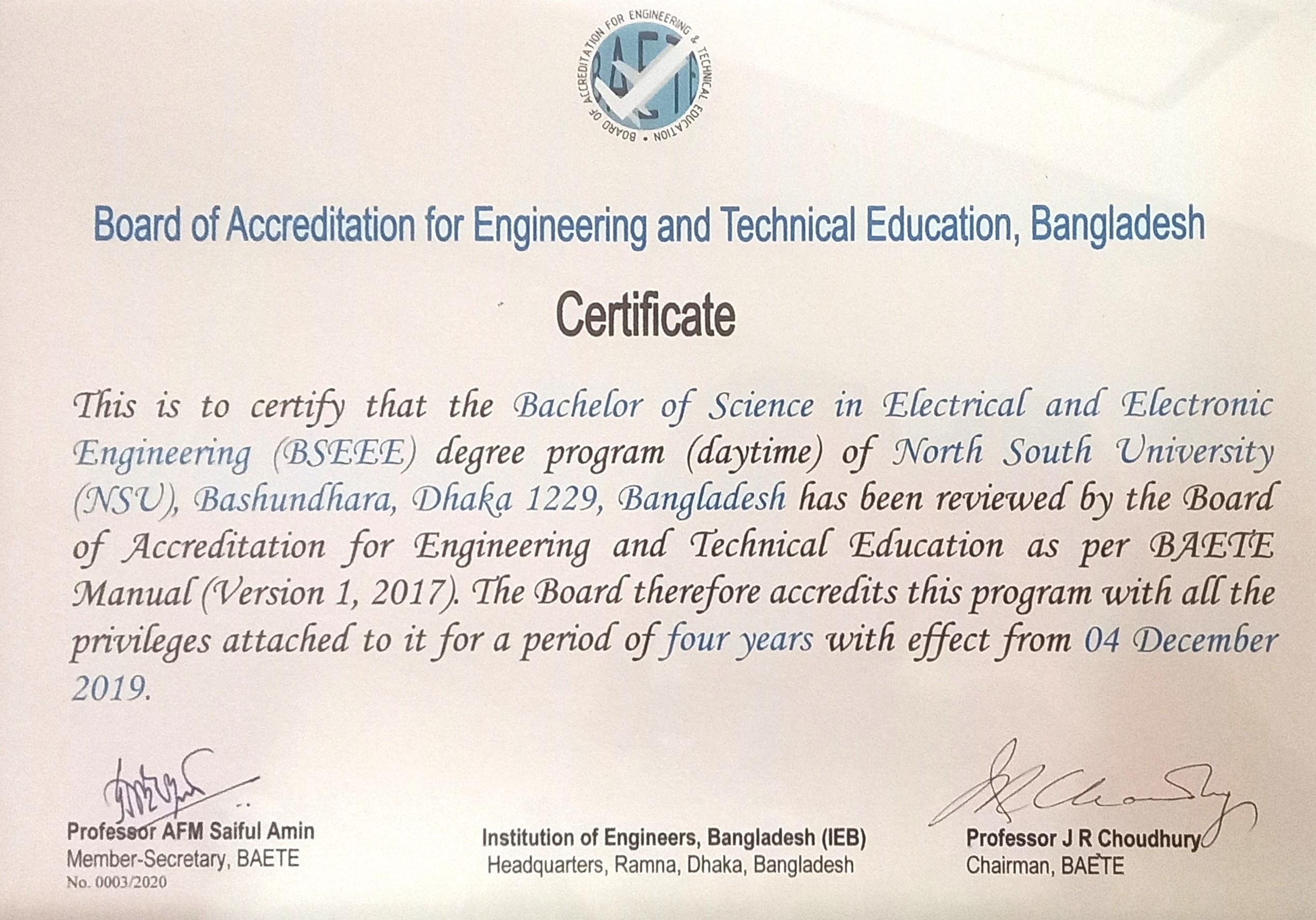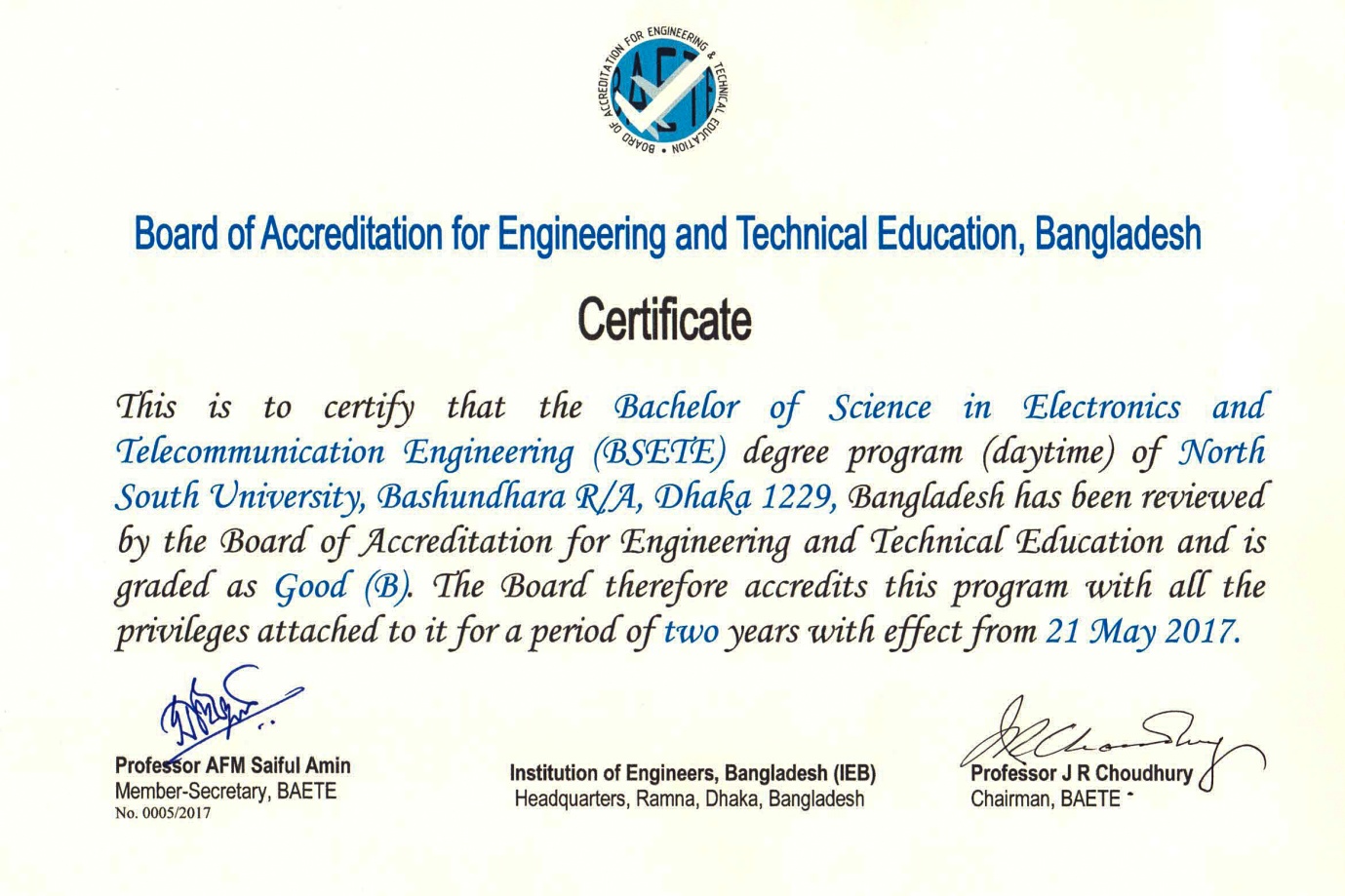The North South University (NSU) and all its academic programs are fully approved by the University Grants Commission (UGC), the only government approval authority in Bangladesh. The University, in addition, sought professional accreditations from national accreditation boards. As a result, the Department’s all the three undergraduate programs – the Bachelor of Science in Computer Science and Engineering (BSCSE), Bachelor of Science in Electrical and Electronic Engineering (BSEEE), and Bachelor of Science in Electronics and Telecommunication Engineering (BSETE) – have been accredited by the Board of Accreditation for Engineering and Technical Education, Bangladesh (BAETE) of the Institution of Engineers, Bangladesh (IEB).
Our graduates have solid and broad educational foundation, and are capable leaders in innovation and passionate contributors in the field of social welfare and human safety. And the three accreditations are proofs that the Department’s programs have met the said attributes and standards essential to produce graduates to enter the critical fields of Electrical and Electronic Engineering, Electronics and Telecommunication Engineering, and Computer Science and Engineering readily.
The Department of ECE introduced the Outcome-Based Curriculum in the Fall Semester of 2014. It developed its vision, mission, program educational objectives and student outcomes of all the undergraduate programs. These program educational objectives are periodically reviewed by the program’s constituencies to ensure they remain consistent with the institutional mission, program’s constituents’ needs, and the set criteria.
The department has adopted the following eleven (a – l) specific outcomes for its three undergraduate programs, namely, BSCSE, BSEEE and BSETE.
- Knowledge: an ability to apply knowledge of mathematics, science, and engineering
- Experiment & Interpretation: an ability to design and conduct experiments of engineering problems, as well as to analyze and interpret data
- Design:an ability to design a system, component, or process to meet desired needs within realistic constraints such as economic, environmental, social, political, ethical, health and safety, manufacturability, and sustainability
- Teamwork: an ability to function effectively on multidisciplinary teams to accomplish a common goal
- Problem solving: an ability to identify, formulate, and solve engineering problems
- Ethics: an understanding of professional ethical, legal, and social issues and responsibilities
- Communication: an ability to communicate effectively with a range of audiences
- Broad Education: the broad education necessary to understand the impact of engineering solutions in a global, economic, environmental, and societal context
- Life-long Learning: a recognition of the need for, and an ability to engage in life-long learning
- Contemporary: a knowledge of contemporary issues
- Tools: an ability to use the techniques, skills, and modern engineering tools necessary for engineering practice.
- Software Method: an ability to apply design and development principles in the construction of software systems of varying complexity (BSCSE only)
Since Spring 2015, the ECE department has been actively working to establish a systematic process that assesses and evaluates the extent to which student learning outcomes are being attained. The assessment process is going to be systematically utilized as an input for the continuous improvement of these ECE programs.



